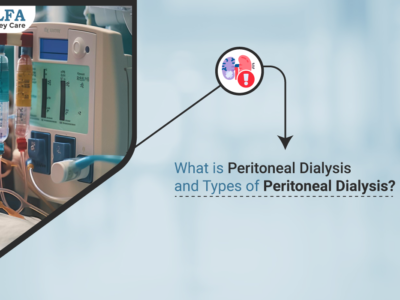Imagine you’re in the prime of your life, and suddenly, your health takes an unexpected turn. You feel increasingly fatigued, your joints ache, and you notice swelling in your legs. After numerous doctor visits and tests, you hear a term you’ve likely never encountered before lupus nephritis. It can be confusing and terrifying just but the first start to manage your health is to know the diagnosis.
In this article, we will explain lupus nephritis for the general understanding of the audience because it might be complicated for those who are new to the disease. We’ll also delve into the lupus nephritis classification system, which helps doctors determine the best course of action for each patient.
What is Lupus Nephritis?
Lupus Nephritis is a kidney disease that can affect those who have been diagnosed with systemic lupus erythematosus, an autoimmune sickness. In SLE, it becomes a pattern of autoimmune diseases where the Immune system perceives adverse intent towards the body and continuously attacks the tissues in the body that are healthy. This is also called lupus nephritis because the kidneys themselves get inflamed.
Symptoms of Lupus Nephritis
The symptoms of lupus nephritis can vary widely from person to person. Here are some common signs to look out for:
- Proteinuria: This simply means that urinary protein can be above normal levels and will even froth the urine.
- Hematuria: When blood traces are observed while urinating or the urine is mixed with blood or a microscope is used to examine the urine
- Edema: Swelling in the legs, ankles, or around the eyes due to fluid retention.
- Hypertension: Common complications include heart diseases and high blood pressure as the kidneys fail to carry out their normal function.
- Weight Gain: This is characterised by fat deposition, particularly fluid retention, happening in a short period without apparent cause.
- Fatigue: Due to the activity, one may experience fatigue and this means they do not have the energy to do anything.
- Joint Pain: Joint pain and inflammation are also experienced by some of the lupus patients in their bodies.
These symptoms can be alarming, but they are manageable with proper medical care.
Diagnosis of Lupus Nephritis
Diagnosing lupus nephritis involves a combination of medical history, physical exams, and several tests. Here’s a step-by-step look at the diagnostic process:
- Medical History and Physical Exam: As a patient, your doctor will question them regarding the symptoms, medical history and even the family history of the specific autoimmune diseases. A physical examination will also assist in the identification of other physical symptoms as may be seen with lupus nephritis, for example, swelling or raised blood pressure.
- Urine Tests: Its importance lies in the ability to detect lupus nephritis, which includes Urine tests. They can show that protein or blood in urine is present due to kidney involvement.
- Blood Tests: Examples of blood tests used to screen renal impairment include creatinine tests and blood tests often referred to as BUN. These tests also indicate the level of some immunoglobulin that is always found in lupus patients.
- Kidney Biopsy: This is a definitive test for lupus nephritis since the places that have been highlighted are more meaningful. This is done by taking a small portion of the kidney and observing it under the microscope to determine the prevailing level of inflammation and the level of injury.
Lupus Nephritis Classification
The lupus nephritis classification system helps doctors understand the severity of the disease and tailor treatment plans accordingly. The classification is based on the findings from the kidney biopsy and is divided into six classes:
- Class I (Minimal Mesangial Lupus Nephritis): Quite bland and resembled more of a non-manifesting form with a bare touch of kidney damage.
- Class II (Mesangial Proliferative Lupus Nephritis): Mildly worse with some inflammation of organs in the kidneys.
- Class III (Focal Lupus Nephritis): They affect less than 50% of renal glomeruli which is a kidney ball formed of blood vessels and exhibit serious symptoms.
- Class IV (Diffuse Lupus Nephritis): Involves damage in more than 50% of the glomeruli and is the worst type, particularly because it can progress to kidney failure if left untreated.
- Class V (Membranous Lupus Nephritis): It is extremely common for there to be thickening of the glomerular basement membrane and this results in appreciable levels of proteinuria.
- Class VI (Advanced Sclerosing Lupus Nephritis): This is indicative of extensive, irreversible loss of kidney function and a patient with this condition is particularly likely to require Kidney dialysis or a transplant.
Knowing how your doctor classified you can be instrumental in coming up with the best form of treatment to be administered.
Lupus Nephritis Treatment
For lupus nephritis treatment, the management goals are to regulate the signs and to avoid flares and loss of kidney function. Here are the main approaches: Here are the main approaches:
1. Medications: Leaving aside the lupus nephritis treatment described above and inflammation control, several types of medications are used for lupus nephritis:
- Corticosteroids: These drugs assist in the lowering of inflammation processes and weakening the immune response.
- Immunosuppressive Drugs: Cyclophosphamide, mycophenolate mofetil and azathioprine are superior to the immune system response.
- ACE Inhibitors and ARBs: They also aid in lowering the occurrence and prevalence of proteinuria as well as the preservation of the kidney.
2. Lifestyle Changes: Lupus nephritis on the other hand can also be managed through the following Modifiable Lifestyle practices and habits. These include:
- Diet: This means that more fluid accumulates in the bloodstream and thus puts more pressure on the blood vessels, a low sodium diet on the other hand will help control blood pressure along with the swelling.
- Exercise: Exercise as a moderate activity can help the body to be in its best form and at the same time, decrease the risk of stress.
- Avoiding Triggers: Stress, infections, and some medicines should be avoided to prevent episodes: Hives can be prevented through reducing the use of trigger factors that cause such flare.
3. Regular Monitoring: It is to be pointed out to undertake routine examination and assessment of the kidneys. It can also facilitate treatment modification early enough in a process that a human would not easily detect.
4. Dialysis and Kidney Transplant: If the kidney disease is progressive, other lupus nephritis treatment such as dialysis or even transplantation of the affected kidney may be required. Dialysis is a treatment that filters wastes in the blood when the kidneys cannot and transplant involves the substitution of the diseased kidney with a healthy one that is taken from another source.
Living with Lupus Nephritis
Lupus nephritis is difficult to deal with, but most of the sufferers can function well in their daily routines if they stick to instructions provided by their kidney doctors and adhere to healthy lifestyles. Here are some tips for living well with lupus nephritis: Here are some tips for living well with lupus nephritis:
- Stay Informed: Learn about lupus nephritis and what new treatments remain undiscovered and find out more about it.
- Communicate with Your Healthcare Team: Continuing and active communication with your physicians is recommended, with any changes in the symptoms or any worries being voiced.
- Support System: Ensure support of family, friends and support groups that embrace key main tasks that involve acceptance of reality, problem-solving, optimism and modelling. It can be helpful to talk things over with those who understand your situation and can give advice.
- Self-Care: Stress should be monitored and reduced to a level that does not put an individual at risk of negative health impacts, one should also ensure one gets enough sleep and does things that one enjoys.
Conclusion
Lupus nephritis is one of the complications of SLE and it is very severe; it has to be managed and monitored closely and perhaps for a lifetime. Knowing the symptoms, proper diagnosis and the right lupus nephritis treatment procedure will help you to take charge of your health and be in a good standing position when it comes to consulting the medical practitioners.
Although lupus nephritis can be a challenging condition, readiness to implement some necessary changes in one’s lifestyle can help cope with the disease and sustain a quality life. Ensure you are aware of the situation as it unfolds, make necessary precautions early enough and do not shy away from seeking any help when necessary.


